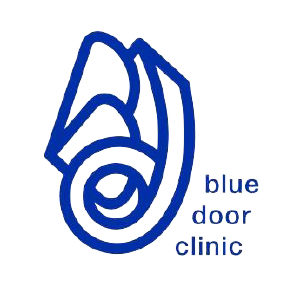
Responding to COVID-19
The pandemic was in its first wave at the beginning of our fiscal year and for a few months our regular day health programming had to be suspended. Instead of welcoming people into our space, the team delivered boxes with three days worth of food and harm reduction supplies to clients’ homes and made phone call check-ins.
In the summer, as restrictions eased, the day health program welcomed clients back for individual appointments and transformed lunch to a take-out model, while peers and volunteers continued to deliver food boxes to clients isolating at home. As fall turned to winter, many elements of care transitioned from in-person to online models, including virtual group programming, and eventually most individual appointments were conducted by phone and video conference.
By year-end, staff were connecting clients with vaccine opportunities and many staff members were looking forward to working in our Ontario Health Team’s community vaccination clinics.
Harm Reduction
Casey House believes reducing the risks of drug use through harm reduction in a judgement-free environment is an essential health service. It’s one of the foundational components underpinning our approach to care, and this year we’ve imbedded it even further.
In partnership with Toronto Public Health, we provide safer injection, inhalation and crystal meth supplies at our front door. Last year, this 24/7 low-barrier service became more essential with the convergence of the overdose crisis, housing crisis, and COVID-19. In the first six months of the pandemic, we distributed over 9,000 kits each month, more than double the average from six months prior. Read our emerging insights in Minimize Harms, Maximize Health: Improving access to safer drug use supplies.

Volunteers from RBC building harm reduction kits for distribution. This photo was taken pre-pandemic in 2018.

Volunteers from Telus building harm reduction kits for distribution. This photo was taken pre-pandemic in 2019.
Low barrier
24/7
service
First 6 months
of pandemic
over
9,000
per month
Distributed
2x
the average from
6 months prior
The demand introduced an opportunity to expand services to include support from peers with lived experience of drug use, which evolved into our new community care clinic. Peers have an important role in harm reduction, and at Casey House they also provide one-on-one support to clients with substance use challenges, thanks to a Toronto Urban Health Fund grant. The initiative both builds peer capacity to provide support and helps clients experiencing negative impacts of substance use.
We also strengthened our organizational understanding of harm reduction, trauma-informed care, and anti-oppressive approaches and practices. An internal team developed a four-part Harm reduction capacity building training program to provide all staff a shared basis of language, learning and philosophy. Four webinars were delivered over eight months:
and the
Additional initiatives included making our entrance more welcoming; improving our overdose response protocols; piloting a formalized prescribed alcohol procedure on the inpatient unit; hiring a harm reduction coordinator; providing clients with naloxone kits on discharge; and applying to offer supervised consumption services exclusively for registered clients.
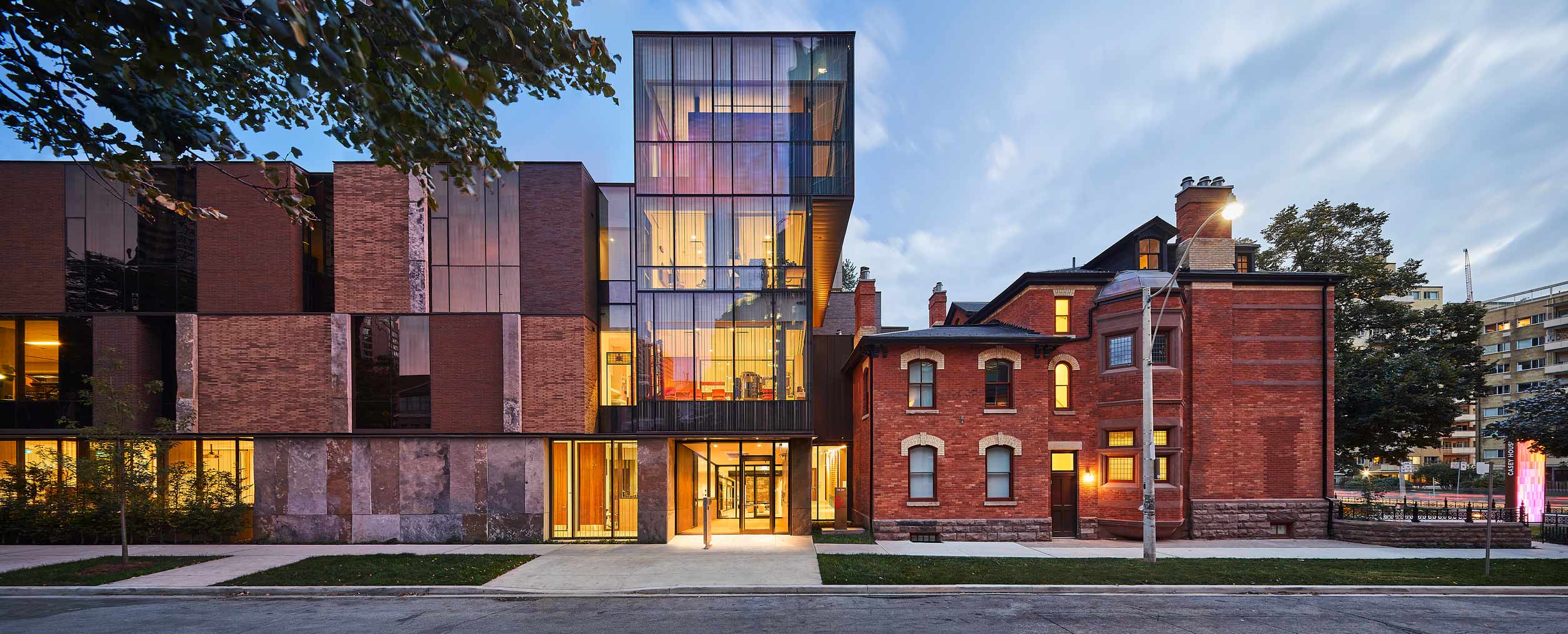
Finally, we invested and are engaging in a multi-part research study to learn from key stakeholders as we expand our harm reduction programming and better understand the impacts of introducing similar initiatives in clinical care settings more broadly.
Send Your Love
When the pandemic prevented Casey House Foundation from inviting artists, art buyers, gallerists and sponsors to gather for Art With Heart, we invited members of our community to express their love for Casey House with a drawing or words.
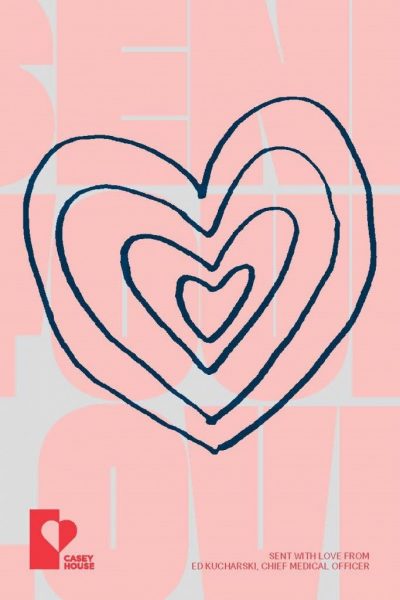
A mailed invitation thanked and acknowledged stakeholders for their support, and invited them to participate. Contributions were posted to a dedicated web page, which also included a drawing tool for digital submissions. A request for donations, to be matched by a generous donor, and the opportunity to purchase a special edition artwork were also part of the site. Hand-drawn hearts, kind words and donations poured in and were shared on social media and in the gallery section of the website.
See the love at
Health Services
Casey House offers three streams of holistic health care that aspires to achieve stability in the health and lives of clients by focusing on possibilities rather than constraints:
Inpatient
24 hr
sub-acute care for illnesses and infection, stabilization, respite and palliative needs from nurses, doctors and allied health professionals
Day health
Goal-focused outpatient weekday program serving community based clients with complex and fragile health who benefit from individual appointments and group sessions from a multi-disciplinary clinical team
Includes a hot midday meal to nourish, build trust and reduce social isolation
Community Care
and Outreach
Connecting with people living with diagnosed and undiagnosed HIV, and those at high risk for HIV at our front door and at partner clinics around the city
Hospital spending of grants from Casey House Foundation

For full financial statements, visit the ‘Accountability, accessibility and freedom of information’ page at caseyhouse.com caseyhouse.com/about-casey-house/accessibility/
Additional Accomplishments
CARED FOR
400
CLIENTS
between 23 and 82 years old who came for clinical activities in the day health program + virtual group attendance
DELIVERED
1,404
BOXES
of food and harm reduction supplies to over 170 client households between April and September

PROVIDED
SUB-ACUTE AND RESPITE CARE FOR
107
clients
who spent
3,607
days as inpatients and had an average length of stay of 34 days

Member of
All Blood is Equal
campaign
a national coalition committed to ending Canada’s discriminatory blood donation policy, which is based on stigma rather than science. In September, Casey House co-signed an open letter to federal decision makers asking they end the current policy and shift towards a gender-neutral screening process that examines behaviour and risk – a position endorsed by scientists and medical professionals.

Chief medical officer
Dr. Ed Kucharski

shared his expertise by teaching several virtual internship modules on HIV/AIDS for the Racialized Students in Health Care virtual lecture series, which aims to encourage BIPOC undergraduate students to pursue higher education and careers in health care. The program is supported by OHTN and the University of Toronto Scarborough
LAUNCHED A
of Pharmacists accreditation
PRESENTED A POSTER AT THE
International
AIDS conference
on our first season learnings from producing a podcast exploring the experiences of people living with HIV. See the pdf here.
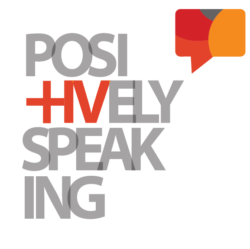
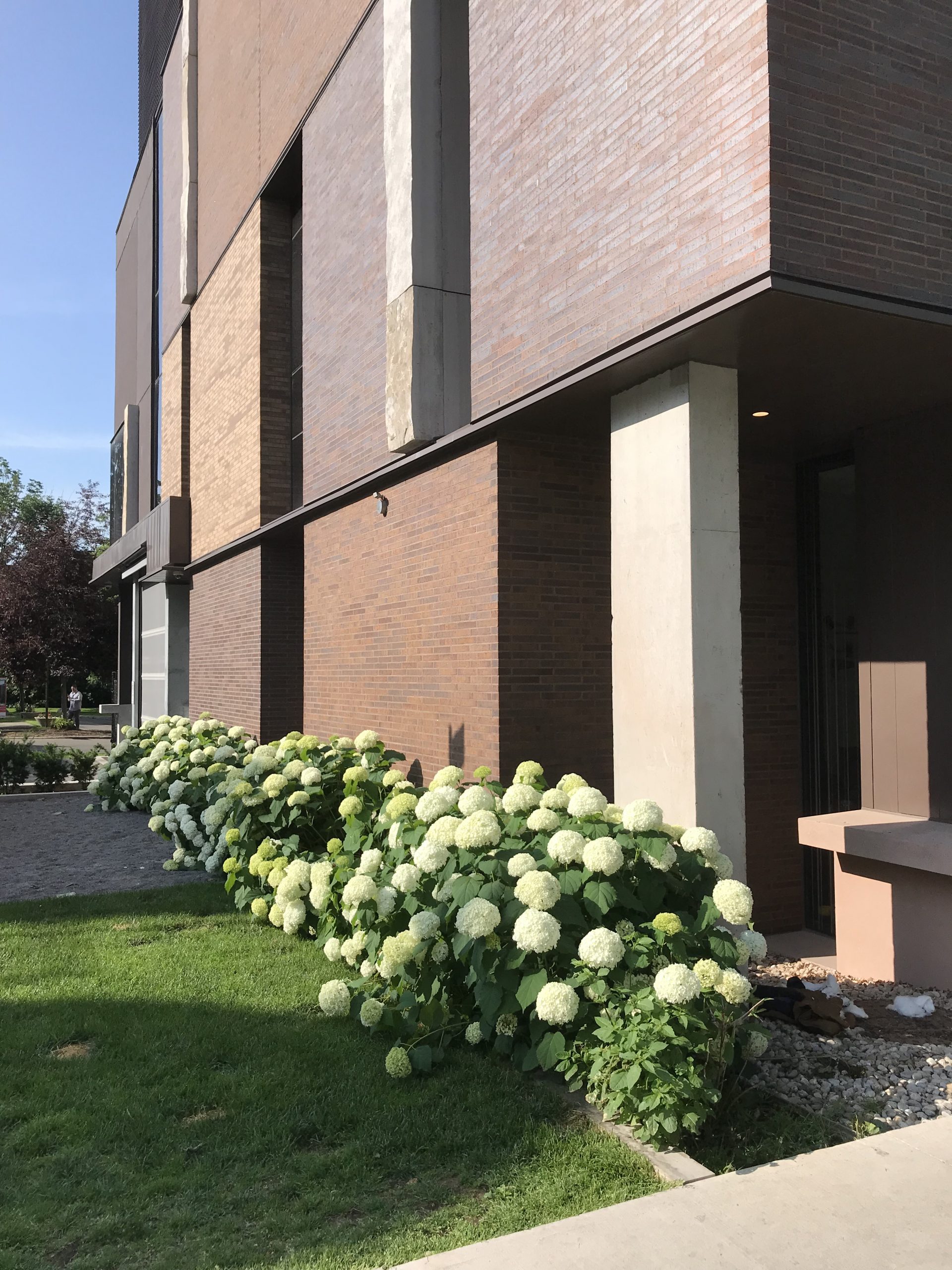
PARTNERED WITH
ASSEMBLED AND DISTRIBUTED
94,268
FREE
free safer injection, inhalation and crystal meth pipe kits to clients and members of the public, 72% more than the year prior, including 202,255 clean needles: 40,451 injection kits; 15,917 inhalation kits; 37,900 crystal meth pipe kits
JOINED
LISTED
amongst top 245 brands by Strategy ahead of Tim Horton’s , Molson Coors and Volkswagen, TD Bank, CAMH strategyonline.ca
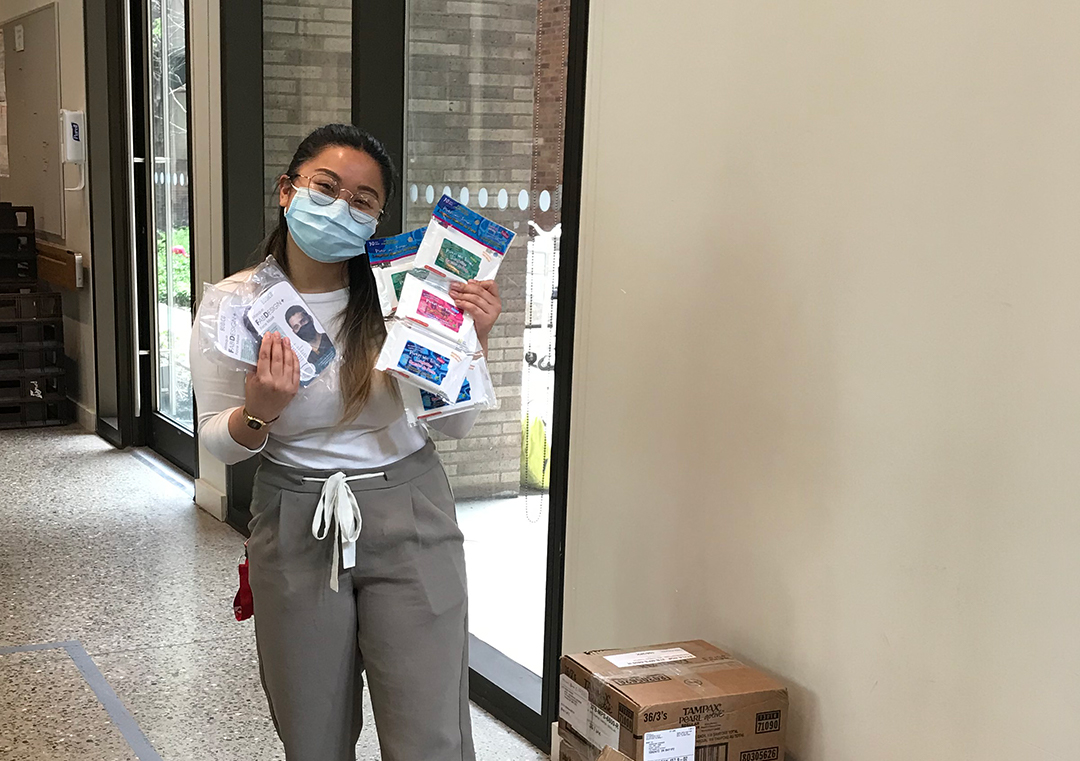
ACCESSED OVER
$ 5,000
from our care and comfort fund to meet needs of clients who could not afford necessities in life, such as a mattress, a cell phone to remain connected with their community workers; and home cleaning for hoarding and bedbugs so they can move back into a safe and healthy space.
CHILD CARE FUND
ACCESSED
47
times
providing HIV+ parents the means to pay for childcare while they attend to their health, whether it’s medical appointments, group sessions, educational workshops, or hospital care, removing one more barrier to achieving their health goals.
HOSTED OR CO-HOSTED
23
live web-based education events ranging from 1 hour webinars to full day workshops to educate 1,246 inter-disciplinary audience members who care for people living with, at risk for, or affected by HIV
Provided web-based full-day 6 session training
for 51 Centennial College paramedics in training to support HIV, 2SLGBTQ and harm reduction awareness and compassionate care in HIV emergency format, to give them a deeper understanding of groups that have historically experienced stigma and discrimination when receiving emergency care
Transform lives and
health care through
compassion and social justice

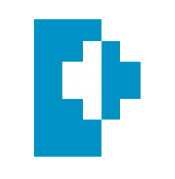




Unequivocal
compassion
Informed,
client-driven care
Deliberate
Inclusivity
Creative, mindful collaboration
Courageous
advocacy
Responsive
innovation
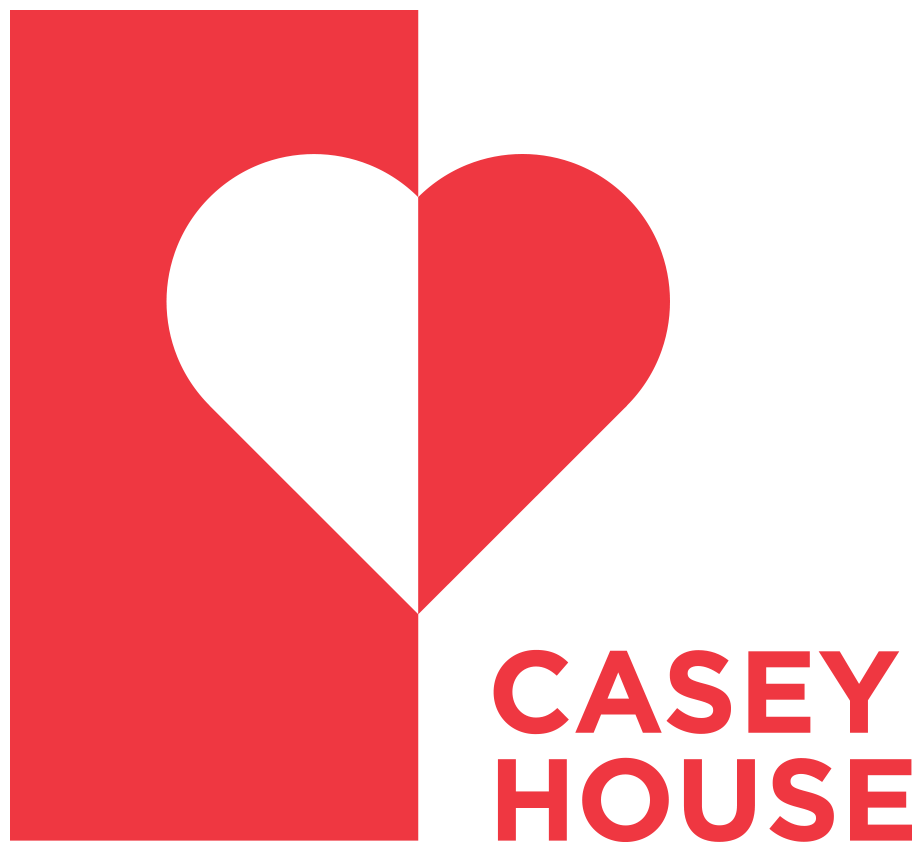
We rely on the generous donations of our supporters to enhance our health care programs and capital projects.
Support
Casey House today
416-962-7600 | 119 Isabella Street, Toronto, ON M4Y 1P2
Charitable Registration No. 10687 8374 RR0001
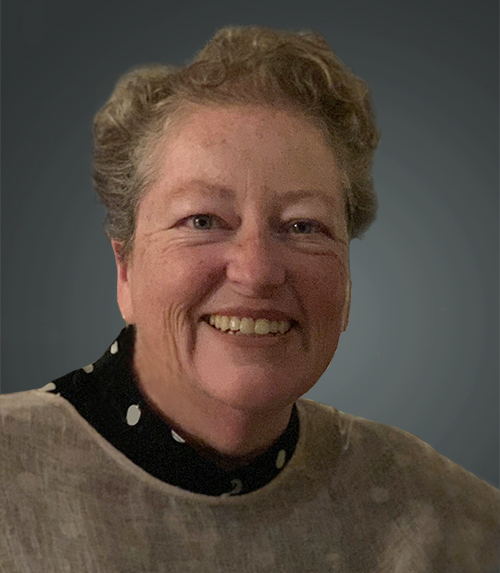











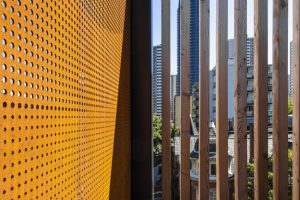
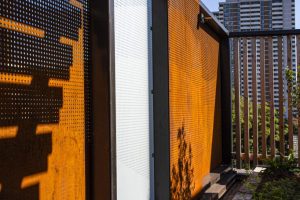


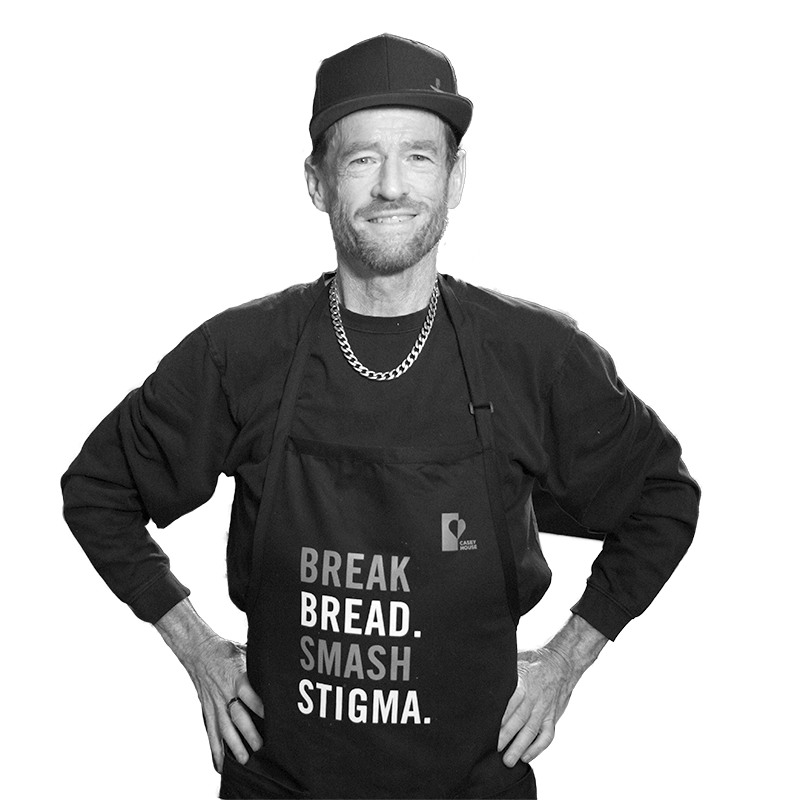



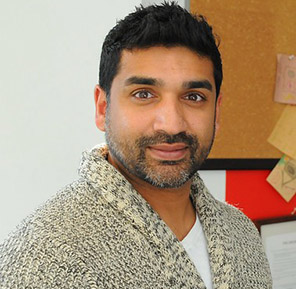




 Basic operating costs are funded by Ontario’s Ministry of Health and Long-Term Care.
Basic operating costs are funded by Ontario’s Ministry of Health and Long-Term Care. Generous
Generous